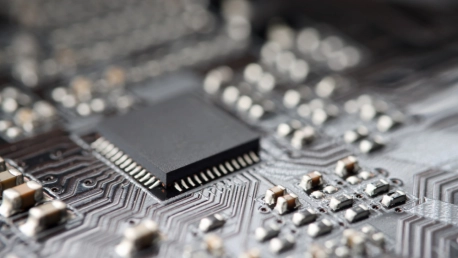The European Commission recently proposed a Chips Act, a set of measures to ensure the EU’s security of supply, resilience and technological leadership in semiconductor technologies and applications. Discover below what is “digital sovereignty” and why is Europe so determined to achieve it.
What is “Digital sovereignty” and why is Europe so interested in it
EU institutional actors have referred to the concept of digital sovereignty for several years. However, the term has only recently gained traction among policymakers.
According to a definition adapted by the European Digital SME Alliance, the largest network of ICT small and medium enterprises (SMEs) in Europe, “Digital sovereignty” is “the capability to actively shape the digital transition of the state”.
“In DIGITAL SME’s Skills for SMEs Strategy 2030, we define ‘digital sovereignty’ as the level of autonomy in ICT related technologies that is required to allow Europe to independently pursue its own interests (…) Digital sovereignty is the capability to actively shape the digital transition of the state, the economy and society. A European digital economy which provides hardware, software and digital services for all essential tasks and areas of digitalization is a prerequisite for digital sovereignty. By strengthening the supply side, digital sovereignty allows for freedom of choice in a global competition and therefore helps to prevent protectionism”, according to the White Paper on Digital Sovereignty.
Andres Ortega Klein, a senior research fellow at the Elcano Royal Institute, states that EU had “digital sovereignty”, but did not retain it.
“Let’s go back to the 1990s. It was a time when the EU dominated the mobile phone industry (2G and 3G), had pre-eminent manufacturers of handsets — Nokia was a world leader — built PCs and accounted for 30% of global manufacturing output of semiconductors, the essential silicon chips (…) These days, in a much broader global market, it makes less than 10% of chips and aspires to a 20% global market share by the end of the decade, it imports almost all of its mobile phones, it has fallen behind in 4G technology and depends on others in 5G, and has lost its lead in connectivity, not to mention its super-dependency on the US and even Chinese platforms.
“What went wrong? Europe undoubtedly missed the boat, which sailed laden with a substantial cargo of industry and services linked to the Internet (invented at CERN, the European Organisation for Nuclear Research) and its offshoots, smartphones (the first, the Apple iPhone, went on sale in 2007), and the data economy, now in the hands of large non-European operators, including Amazon, without which many European companies would not have been able to get off the ground. Europe, meanwhile, despite the desire of the Commission and governments to fill the void, lacks a unified big data market. Foreign big tech firms have been quick to take advantage of this Balkanisation of European data,” the researcher explains in an article on European digital sovereignty.
As analysts often point out, Europe currently suffers from a double dependence on semiconductors. On the one hand, dependence on the US for chip design, as with companies such as Intel, Micron, Nvidia, and AMD. And on the other, a dependence on Asia, where most of the chip manufacturing operations are located, notably in Taiwan where the giant TSMC operates, but also in South Korea, thanks to companies like Samsung and SK Hynix, and increasingly in China.
How European Chips Act tackles semiconductor shortage
The European Chips Act will ensure that the EU has the necessary tools, skills, and technological capabilities to become a leader in this field beyond research and technology in design, manufacturing and packaging of advanced chips, to secure its supply of semiconductors and to reduce its dependencies.
From research to production and a resilient supply chain, it will bring about a thriving sector. It will mobilise more than €43 billion of public and private investments and set measures to prevent, prepare, anticipate and swiftly respond to any future supply chains disruption, together with Member States and EU’s international partners. It will enable the EU to reach its ambition to double its current market share to 20% in 2030, according to the press release.
The European Union depends on Taiwan for more than half of its needs, EU internal market commissioner Thierry Breton explained. This poses a major economic risk should a military conflict with China break out. “If Taiwan could no longer export, almost all the world’s factories would shut down in three weeks,” Breton warned.
“This plan will ensure security of supply for European factories, quadrupling semiconductor production in Europe by 2030. For the first time, Europe is modernizing its competition rules, especially those on state aid”, Thierry Breton added.
In this era of rapid change, nations around the world are trying to capture the benefits of new technologies, both economic and geopolitical. With this new Act, Europe is trying to regain control of its technological destiny and to strengthen its role on the global stage.









